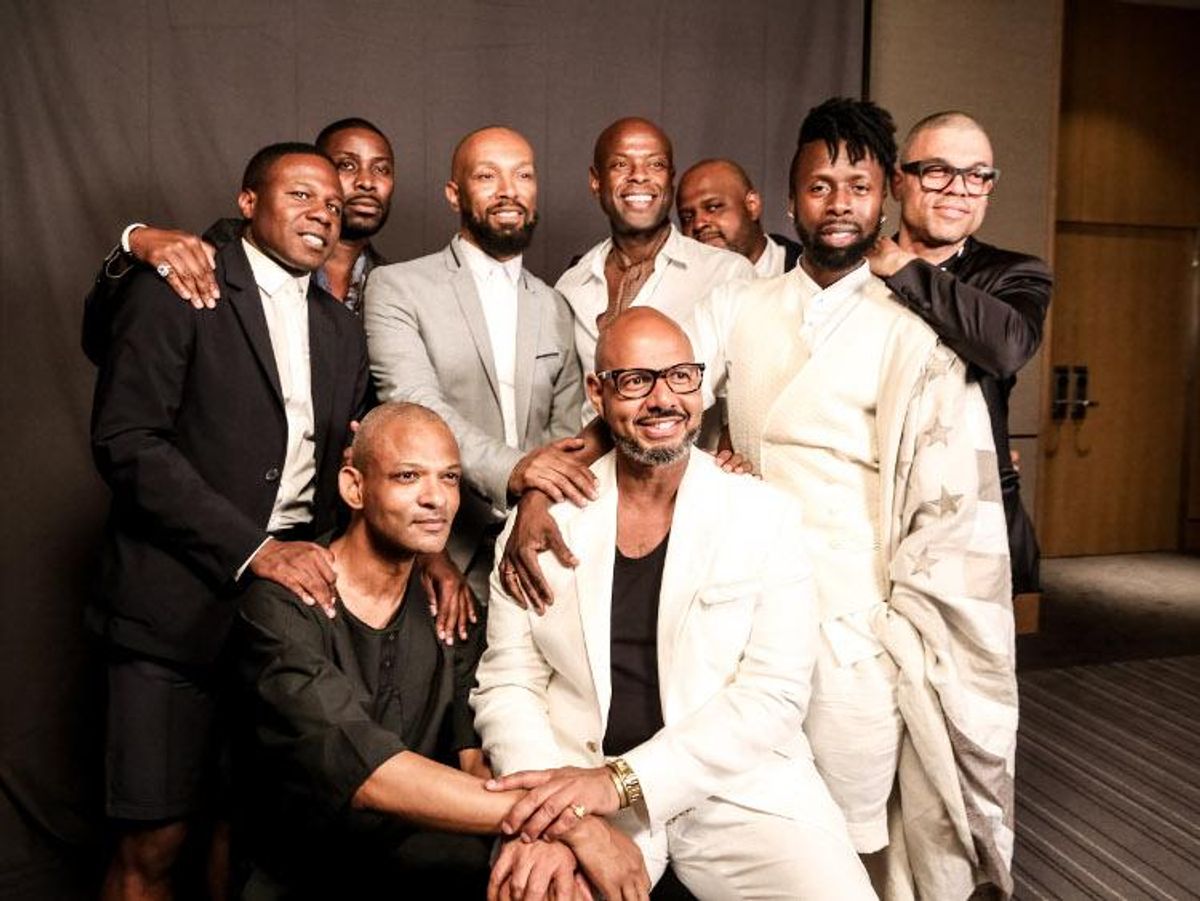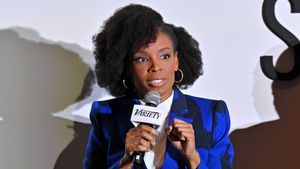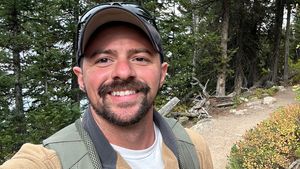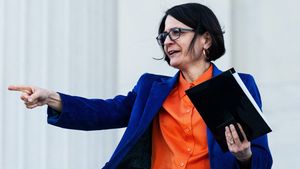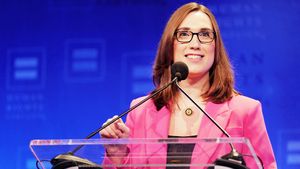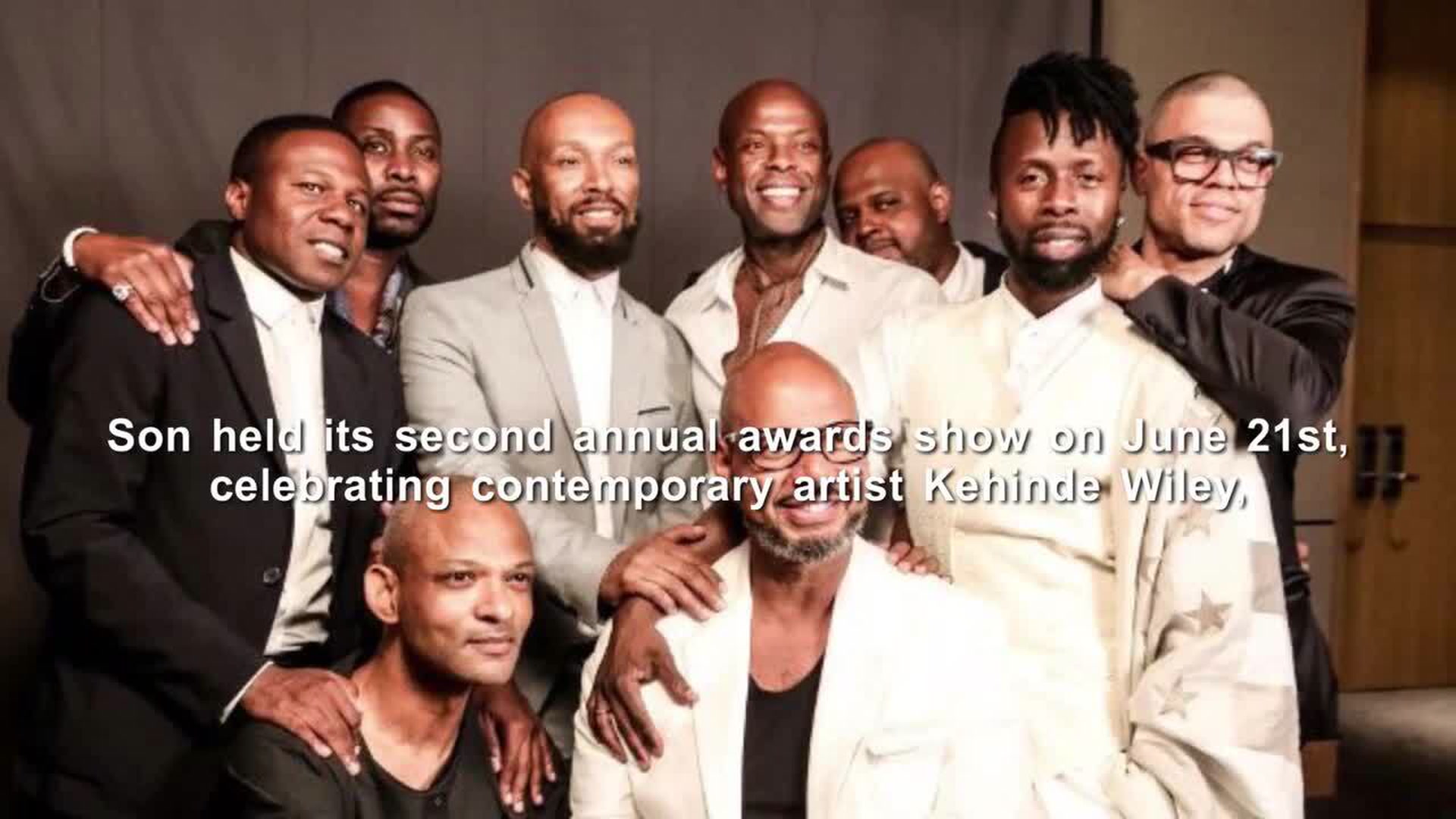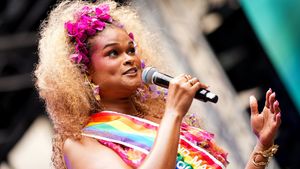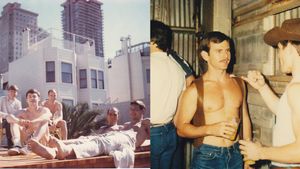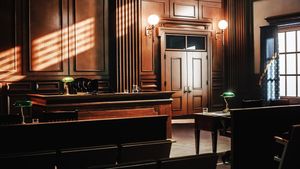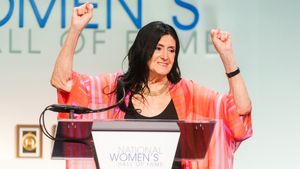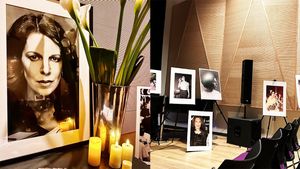Being black in the LGBTQ community can be a really alienating experience. To say the least. Walking into a bar, logging onto a dating app, even seeking professional aid or counsel can be a potential minefield of microaggressions and misunderstandings. And then there's being queer in the black community, which carries with it a whole other set of problems and challenges, so that navigating these identities can lead one to feel out of place, or inadequate. But Emil Wilbekin and Native Son are here to remind black gay men that they belong and that they are indeed worthy.
"It's important how we see each other," Wilbekin says. "And that we're able to see each other in beautiful spaces because we're worthy. We've been kind of relegated to dark spaces and apps and chat rooms--how do we come together in the light and see each other?"
Native Son is an intergenerational movement founded by Wilbekin with the aim of creating a safe space to empower black gay men and celebrate their achievements in the arts, business, media, fashion, politics, and healthcare. Native Son held its second annual awards show on June 21, celebrating contemporary artist Kehinde Wiley, philanthropist Reggie Van Lee, and Next Model Management President Kyle Hagler. The inaugural awards, held last November, honored CNN anchor Don Lemon, playwright George C. Wolfe and activist DeRay Mckesson--all possessing of what Wilbekin refers to as #BlackManMagic.
Related | In a Year of Unprecedented Visibility, the Native Son Awards Honor Achievements of Black Gay Men
A confluence of events led Wilbekin--whose extensive resume boasts editor-in-chief positions at Vibe and Giant, as well as stints at Essence, Paper, and Complex--to found Native Son. After losing his job at Essence, Wilbekin took an Eat, Pray, Love-esque sabbatical in India to figure out what he wanted to do next. He knew that he wanted to create something to give back to the black gay community. Back in New York, a book on his shelf caught his attention: James Baldwin's Notes of a Native Son, his first collection of essays detailing the problem of race in America and Europe. Shortly afterwards, during his best friend's bachelor weekend in the country with several other successful black gay men, Wilbekin realized "there's something here." And so Native Son was born. And it couldn't happen at a better time.
With the success of Moonlight, the Oscar-nominated Baldwin doc I Am Not Your Negro, Edward Enninful being named editor-in-chief of British Vogue, and Hilton Als winning the Pulitzer Prize, Wilbekin notes, "all this stuff is happening and we need to own it."
Related | A Moonlight Revolution: The Black Queer Experience Comes of Age in America
As Native Son prepares to launch a digital platform, I sat down with Emil Wilbekin to discuss the movement, how we as black gay men see each other, confronting the scourge of HIV/AIDS in the community, and just being fabulous 'cause we fucking can.
OUT: This year's sponsors for the Native Son Awards included Cadillac, HBO, Belvedere, and Hilton Hotels. I know, and you know, from talking with the guys at, like, [black queer publication] The Tenth Magazine, that it's often hard to find the advertisers because they're not always as eager to support black and brown queer folks. How do you get around the lack of advertiser willingness, for lack of a better word?
My thing was: I was going to be, and am being, very audacious and bold about Native Son. I think because of all my work experience at Vibe, at Giant, working with Marc Ecko, Complex, and Essence, I was really like, how do we create something that is elevated and something that is deserving of the audience? Because we're super affluent, we're tastemakers, we like nice things, we travel, we like luxury--why can't we have that?
It was really great because Cadillac was the first sponsor to come on and that just elevated the whole platform. How it kind of happened was that I met someone from marketing through mutual friends. I was telling him this story of how I grew up and learned how to drive in a Cadillac--I have a baby picture of me waving out of my parents' Cadillac. It was like this synergy and they really believed when I made the pitch that there's a community of me: a community of black gay men who are professional and like nice things and are affluent and need to be seen and heard. Once they bought in, HBO and Belvedere came on board for the first [Native Son Awards] and later Hilton came on board for the second one.
I love the idea of an affluent class of black gay men, but do you feel that alienates black gay men who aren't necessarily of means, or that lack education or resources?
Here's the thing: As I'm building this platform and this movement, it's definitely not intended to be elitist. People have definitely commented about that, but you gotta start somewhere. The other piece is that we do other things. We had a town hall in February at Neuehouse that was open to the public. We had over a hundred people, standing room only, and the conversation was "Our Voice, Our Power in the Age of Trump." It was all these different types of guys but what everyone liked was that it was a safe space. Some people were like, I never even knew what HIV criminalization was. And they hadn't had spaces where they could sit and talk about identity and intersectionality from our perspective.
We're also going to be doing workshops that are about empowerment. I think we have to go beyond just we're fabulous and we can come together in these rooms and be exclusive. It's: We now have to do work. There's a lot of healing that needs to happen. The awards is one aspect, but I want to make it holistic and inclusive for the whole community.
It's interesting that you mention HIV criminalization and the lack of knowledge around it--last summer I went to a town hall-like event through the NYC Health Department about tackling HIV among queer men of color, and I was taken aback by how much people didn't know. It's scary.
It's scary when you think about the fact that black gay men are the group, still, with the largest rate of HIV infections. That's scary in 2017. And a lot of people don't know about PrEP. I had a conversation with a friend the other day and he's like, I don't want Native Son to be an HIV/AIDS platform. But it's a huge issue in our community so we have to deal with it. But to me, it's about going under the surface: What are the symptoms that are causing us to be the largest group infected with HIV? We need to deal with mental health, we need to deal with self-acceptance, confidence, and why the community is not supportive of us. We have to support each other.
So that's a big thing and one of the reasons...so at the first awards show I came out about my HIV status--I've been positive for 15 years, I'm undetectable, I've been on meds for 10 years--but it was important for me, if I was going to talk about authenticity and standing in your truth, I had to stand in my own truth. Even people the other night when I brought it up in my speech, they were like, I didn't know you were positive. And it's not like I had to do it, but I felt that it was important. People need to see or hear someone who's positive, who's healthy, who's living his life--it didn't stop me, I'm not living in shame, and I'm accepting who I am.
What's next for Native Son?
A big part of our platform I'm in the process of developing is what the community giveback will be. I'm going to focus on mentorship, so I'm going to talk to the guys from Black, Gifted & Whole because a part of it is what they're doing. Their whole concept is sending young, black gay men to college. So mine is kind of a little bit broader, which is starting in high school and helping to groom them to get to college and how to get jobs.
And there are so many older, black gay guys that want to give back but don't know how or don't have platforms and apparently have been alienated by other black men organizations because they're queer. I keep hearing that over and over again. I've gotten all these DM messages from people all over the country and even some from Africa asking when we're going to bring it there. So the goal eventually is to move it around the country.
To learn more about Native Son, follow them on Instagram, Snapchat (@Native Son Now), Twitter, and Facebook.
